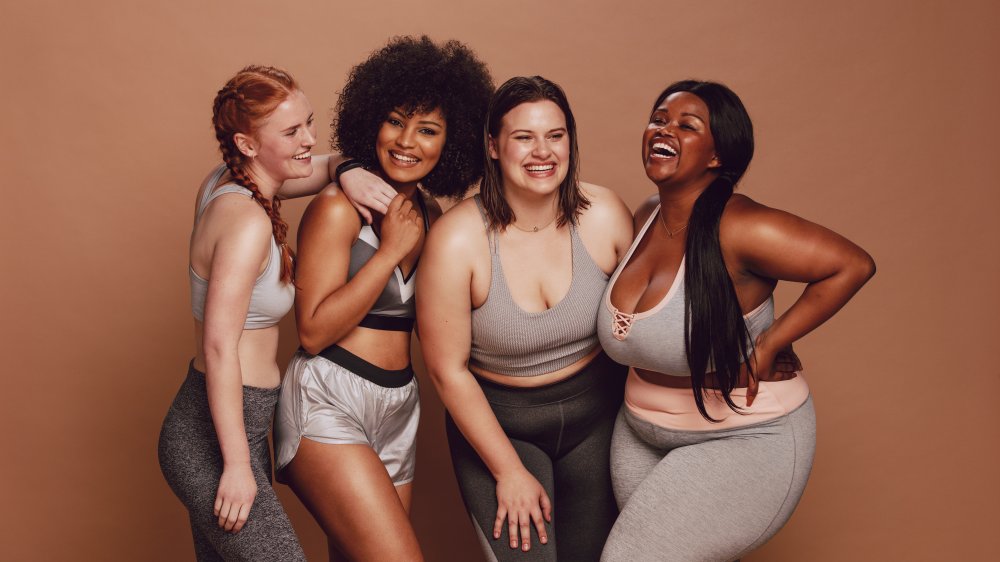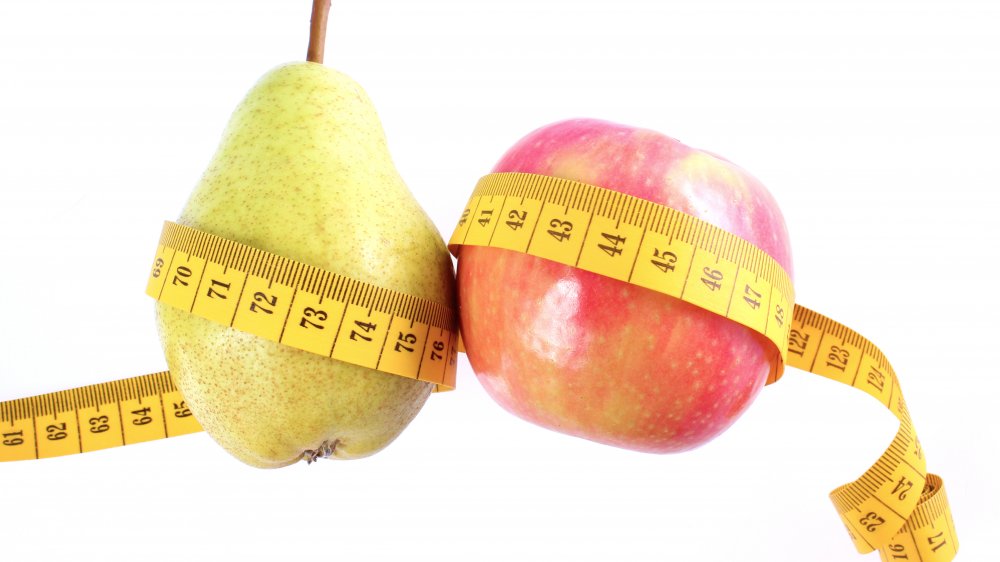Here's What Your Body Shape Really Reveals About You
Ever wonder why your cousin looks so glamorous in a long, floral dress — but if you wore the same outfit, you'd look like you got into a battle with some drapery ... and the drapery won? Or maybe you marvel at trends like "mom jeans" that look so sexy on your curvier friends, but on you, it just looks like you're wearing your mom's jeans? As much as we may strive for self-acceptance, it can be really difficult not to compare ourselves to other body types — especially when what we see in the mirror is significantly bigger or smaller or rounder or straighter than what we see when we glance around a room.
Plus, the stakes are pretty high when it comes to body shape — it's not just about what kind of clothes will look best on you. Your body shape may determine what kind of health risks you're most likely to face as you age, even if you eat healthfully and exercise regularly, according to Cornell University professor David Levitsky. "[Diet] plays almost no role in the distribution of where we deposit our fat," Levitsky told PBS affiliate WSKG. "That, we can thank our parents for."
So which shape are you, and what does that mean for what health obstacles you may be facing down the road? It all depends on where you're carrying the highest distribution of your body fat.
Pear and apple body shapes have very different health risks
If you've got thick legs, curvy hips and a small waist, and narrow upper body, you are a classic pear. Women who are pear-shaped are more likely to have cellulite and varicose veins than other body types (per HealthSite). "People with this body type often develop problems with their veins and joints since they're being asked to support a lot of weight," clinical immunologist Lina Velikova told Livestrong. If your legs and arms tend to stay thin, but when you gain weight, it's all in your belly, then you have an apple shape. Having so much fat around the body's most important organs puts apples at risk for heart disease, high cholesterol, cancer, and diabetes (per WebMD).
But experts say that which piece of fruit your body most resembles is in no way a guarantee of any health problems, and that exercising regularly and eating a healthy diet can mitigate the more serious concerns. "Your overall diet, body weight, stress management and physical activity are much more prominent characters in the story of your overall health" than body shape, registered dietitian Kristin Kirkpatrick told You Beauty.
Inverted triangles and hourglasses have fewer health risks
One body type that's been forever idolized in movies and television is the hourglass shape, which is smaller at the waist with fuller breasts and hips. Hourglasses aren't necessarily thin, and because their weight gain tends to be evenly distributed throughout their body, they might not even notice weight gain. Unfortunately, obesity and its associated health problems can creep up on an hourglass who doesn't step on a scale regularly (per Penn Medicine).
The inverted triangle body type, however, does not have to deal with health problems related to weight gain. This type has a narrow waist and small hips, strong shoulders, and not much body fat — your typical fashion model fits in this category, as do some types of athletes (per Shapescale). Thin women who have large breasts are also often in the inverted triangle body type category, however, and high breast density is one of the risk factors for breast cancer, according to the Centers for Disease Control and Prevention.
Whether you're a pear, an apple, an hourglass, an inverted triangle — or maybe your body doesn't really fit into any of these categories — letting these terms represent more than potential health risks to watch out for isn't going to be useful, experts noted. In fact, pigeon-holing yourself may even trigger disordered thinking. "People come in all shapes and sizes. Happiness is not a body shape," said Katrina Loos, writing about her recovery from bulimia in Medium.


